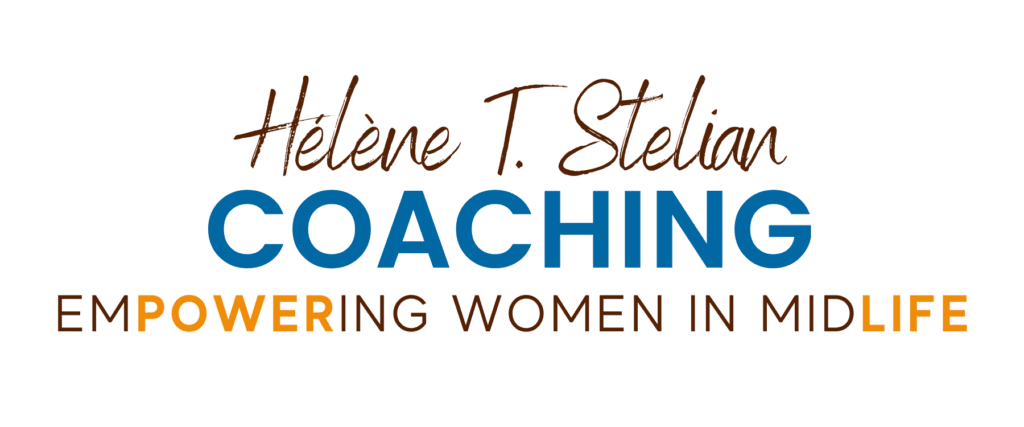You are an award-winning journalist with a recently released book: Mom and Dad, We Need to Talk: How to Have Essential Conversations with Your Parents About Their Finances. What was the problem you wanted to address with your book?
I wrote Mom and Dad, We Need to Talk because I want adult children to realize how important is it for them to talk with their parents about their parents’ finances before an emergency forces them to have this conversation. When my mom was diagnosed with Alzheimer’s disease at the age of 65, I had not had detailed conversations with her about her finances. As a result, we had to scramble to get legal documents drafted while she still was competent enough to sign them. We didn’t have a plan for long-term care. And I had to play detective to find out information about her finances as her memory declined and I stepped in to start managing money matters for her.
Unfortunately, a growing number of children will have to provide support for parents who are living longer but aren’t financially prepared. Waiting to talk to parents until they’re having problems can leave children with fewer options to help them. Conversations will be more emotionally charged. And it might be impossible to gain access to parents’ accounts or make healthcare decisions for them without lengthy, expensive court proceedings.
My book helps people who are struggling to figure out how to talk to their parents about their finances get over their fears. It provides them with conversation starters, offers advice on what not to say, explains what information needs to be gathered and shares strategies for getting through to reluctant parents.

You advocate for knowing everything about our parents’ finances. Why is that so important and what’s the appropriate timing?
You will have to get involved with your parents’ financial lives at some point – either while they’re living or when they pass away and you have to deal with what they have left behind.
The more details you have about their finances, the easier it will be to step in and help if a health or financial emergency happens. Plus, you can ensure that they have the proper legal documents that would allow you to make financial or health care decisions for them if necessary. Without these documents – a power of attorney and advance directive – you won’t be able to make financial or health care decisions for them if they are no longer competent without going through a potentially long and expensive court process. Even more important, these conversations can help reveal whether your parents are counting on you for support as they age. If they are, that will impact your finances, and it’s something you need to plan for.
And if your parents die without a will or living trust, family fights could erupt over who gets what. It will make a difficult time even harder.
The best time to have these conversations is while your parents still are relatively young and healthy. If they’re already starting to have health issues, these conversations can’t wait. You need to start talking today.

With my mom
How do we approach our parents asking for that kind of transparency without sounding like we’re eager to get our hands on their money?
The key is to let your parents know that you want to talk to them because you’re looking out for their best interests. Approach the conversation out of love and respect. You could say something like, “Mom and Dad, you took good care of me while I was growing up. I want to be able to do the same if you ever need help from me. Yes, I understand that your finances might not be any of my business right now. But if something were to happen to you, it might become my business. That’s why I’d like to get some information from you.”
What if our parents are reluctant to share?
Don’t give up. It could take several attempts to get them to open up. That’s why it’s better to start trying to have these conversations sooner rather than later because it can take months or even years before some parents become comfortable with the idea of sharing information about their finances.
You also could reach out to a third party – such as a family friend, clergy member or financial professional – to encourage your parents to talk with you. Your parents might be more receptive if the request if coming from a peer than from their child.

What other problems does your book address?
My book addresses how to talk with siblings so you can get on the same page before talking to your parents. If you and your siblings don’t always see eye to eye, call a meeting and let them know you want to talk about your parents’ financial well-being. Give each sibling a turn to talk and share concerns without interruptions. Once everyone has had a chance to talk, you can focus on what all of you agree on – which, hopefully, is doing what’s best for your parents.
The book also offers tips on how to talk to parents about long-term care and when it’s time to move. With long-term care, it’s important to find whether your parents have a plan if they ever need it. Do they have a way to pay for care, or are they counting on you to provide care? When it comes to talking about when it’s time for your parents to move, highlight the positives of downsizing or moving to a retirement community rather than focusing on all of the reasons they shouldn’t stay in their current home.
What other resources do you recommend for adult children of aging parents?
The National Council on Aging has a wealth of resources on its website.
AARP has lots of free articles and resources to help with financial matters and aging issues.
Next Avenue is public media’s national journalism service for America’s older generation and has a wealth of articles on caregiving, aging and more.
You can find a professional to help coordinate care for a parent through the Aging Life Care Association.
If you’re a caregiver, read How to Care for Aging Parents, 3rd Edition: A One-Stop Resource for All Your Medical, Financial, Housing, and Emotional Issues by Virginia Morris. It’s an excellent guide.
Carefull is a soon-to-be launched service for financial caregivers to help them monitor loved ones’ finances. I have been creating content for the site, and there’s lot of information about what to do if you have to help your parents manage their finances.
Connect with Cameron Huddleston
Contact form: https://cameronhuddleston.com/contact/
Website: https://cameronhuddleston.com/
Book: Mom and Dad, We Need to Talk: How to Have Essential Conversations with Your Parents About Their Finances
Facebook page: https://www.facebook.com/CameronHuddlestonMoneyExpert/
Twitter: https://twitter.com/CHLebedinsky
LinkedIn: https://www.linkedin.com/in/cameron-huddleston-187b633/
Cameron Huddleston is the author of Mom and Dad, We Need to Talk: How to Have Essential Conversations with Your Parents About Their Finances. She also is an award-winning journalist with more than 18 years of experience writing about personal finance. Her work has appeared in Kiplinger’s Personal Finance, Business Insider, Chicago Tribune, Forbes, MSN, Yahoo and many more print and online publications.







although I have not read the book– I will get it that I don’t see mentioned is the topic of financial elder abuse.
Financial capacity is seldom discussed. Financial capacity is a separate set of executive skills that may appear sooner than an diagnosis of MCI.
The focus of my work is in doing the work of Incapacity planning, doing assessments for exposure and vulnerability, finding solutions to strengthen healthcare, resource management, relationships and legacy.
A failure to do this work often results in double jeopardy: whatever the triggering age related event is and the fall-out from a failure to anticipate and implement a well considered plan.
Our culture is so entrenched with the idea of “independence” that it actually is extremely harmful to older adults and their families and legacies for exactly the reasons Cameron mentions. Many older adults believe they will have complete control of their faculties, affairs, surroundings, relationships until their last dying breath. That is usually not the case.
The key is accepting the idea of “interdependence”. It is the foundation based on effective family communication systems, trust, core competencies, commitment to protect their autonomy as long as circumstances allow and to incorporate the protocol of “shared decision making”. You have to anticipate a “triggering event” whether it is a slow moving diagnosis or a catastrophic event.
Early planning and preparation– in estate planning, banking practices, life care planning, end of life care planning and building a strong and robust professional, personal and family infrastructure to support aging parents and the transition of wealth to the next generation.
It is emotionally hard work, its time consuming, labor intensive it is extremely detailed project– multi-disciplinary, effective care and coordination.
Consumers need to educate themselves about competent legal counsel, estate planning products and services (no trust mills)— geez louise people get suckered into a cheap $500 solution and then wonder why the attorney won’t fund their trust. Lawyers are not bad people, the burden is on the consumer to do their homework to find the right professional– lawyers are the only people who can do this– really. Respect that and pay for it.
If you have ever purchased more than one new car in your life– you can afford a good competent estate planning attorney. it’s an investment!!!
It matters immensely as the attitudes, behaviors, health of family systems will determine an older adults legacy. It has everything to with money– and at the same time, none it all.
Elaine — You bring up a very important point — elder financial abuse. It is a huge problem. I don’t devote a chapter to it in my book (in hindsight, I should have). However, I do point out throughout the book how important it is to not betray your parents’ trust if you’re the one helping them with their finances.
I also point out how important it is to work with an attorney to draft documents such as a power of attorney — and how important it is to choose someone you trust to fill this role.
When adult children have these conversations with their parents, it’s important to point out that, by planning, they (the parents) aren’t giving up control but rather maintaining control. By naming a power of attorney they trust while they’re still competent to make this decision, they’re avoiding having someone they might not trust step in down the road and try to take over their finances. By telling their children what their health care and long-term care wishes are, they’re increasing their chances that those wishes will be fulfilled. If parents don’t tell their kids their wishes, there’s very little chance those wishes will be fulfilled.
The more planning you do, the more conversations you have, the better.